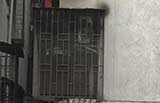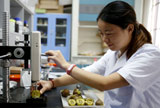China to relax curbs on foreign investment in hospitals
(Agencies/chinadaily.com.cn) Updated: 2014-05-28 16:37
|
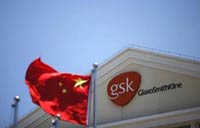 |
| GSK case sounds alarm for foreign firms |
|
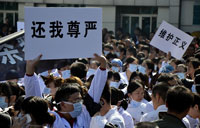 |
| Beijing hospitals to get insurance for doctors |
|
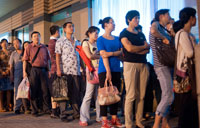 |
| Forum trends: My experience at a Chinese hospital |
China is an appealing market for pharmaceutical firms and medical-equipment makers, with spending in the industry expected to nearly triple to $1 trillion by 2020 from $357 billion in 2011, according to consulting firm McKinsey.
In a healthcare reform plan for 2014 published on its website, China's cabinet, the State Council, said it aimed to relax limits on foreign investment in hospitals on the mainland.
The plan involves overhauling the management of medical joint-ventures that involve overseas partners, including "reducing restrictions on the percentage of foreign ownership in medical JVs and collaborations," it said in the statement.
The move would increase the number of cities where investors from Hong Kong, Macao and Taiwan could set up wholly-owned medical institutions, and allow overseas investors to set up wholly-owned hospitals in designated areas, such as the Shanghai free trade zone.
The statement gave no details of the timeframe of the easing or the changes in holdings.
The overhaul also aims to bolster insurance coverage and crack down on graft, key areas for President Xi Jinping, who is looking to improve access and cut healthcare costs for the country's population of nearly 1.4 billion.
Since 2009, China has spent 3 trillion yuan ($480 billion) on healthcare reform, but the system still struggles with a scarcity of doctors, attacks by patients on medical staff and a fragmented drug distribution and retail market.
China will tighten up on drug distribution by clamping down on fake drugs, kickbacks to doctors and illegal sales tactics, the government said in the statement.
Chinese authorities charged executives at British drugmaker GlaxoSmithKline Plc earlier this month with corruption, in an intensifying crackdown on graft and high prices in the country's healthcare sector.
Affordable
Authorities will also look to bolster drug price monitoring and transparency, as well as toughening price supervision of imported drugs and medical equipment, the State Council said.
- Healthcare reform progress
- Healthcare changes to aid new family planning policy
- China invests 3 trillion yuan in healthcare
- Chinese public hospital remuneration and financing reform seminar opens
- China to make public hospitals more efficient
- Beijing hospitals overwhelmed by outsider patients
- Toward doctor-patient rapport
- Improving doctor-patient relations
- Nurse in Nanjing attacked by patient's parents
- Patient detained for assault on pregnant nurse
- Study finds plummeting levels of physical activity among Chinese adults
- School not at fault, its principal insists
- Xi says advice from netizens welcome
- China to help more rural migrants settle in cities
- Expert says big quake unlikely to hit nation soon
- Habit of reading in China expands with mobile tech
- Pollution poses threat to cities' water
- Man, 57, detained in courier beating captured on video
- Embryos growing in space a 'giant leap'
- 500 students sickened at school built on toxic site



